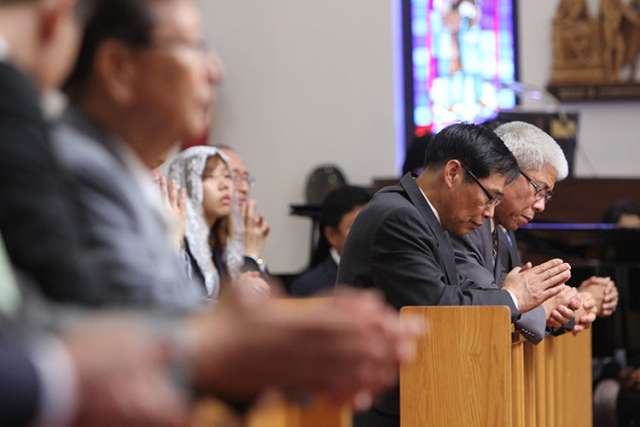The exile in Babylon was a watershed for the people of Israel. The encounter with other cultures and other religions at close quarters acted as a catalyst for theological development. It was during this period, when this portion of Isaiah was written, that their perception of God evolved in new directions. Today’s passage paints a different portrait of God from that of a tribal deity. The Lord insists that justice and doing what is right are the essential elements of true religion. Anyone who is willing to walk this uncomplicated but often neglected path is welcome on the mountain of the Lord. The temple is a house of prayer for all peoples — and this was reiterated forcefully by Jesus in the “cleansing” of the temple in chapter 11 of Mark’s Gospel.
Barriers between peoples do not represent God’s will, nor do attempts to make God the patron deity of any particular group. The direction of our spiritual evolution is unity and inclusivity. Humanity can meet on God’s holy mountain and rejoice together. A glance at the sad events occurring in our very own time that have a religious component make this vision all the more urgent and compelling.
Paul recognized that both gentiles and Jews had been disobedient to God in various times and ways. But somehow God was always one step ahead of everyone. The disobedience of each group even played a part in the divine plan as each group was nudged towards a deeper experience of God. Paul was certain that the gifts and calling of God were irrevocable. Unfortunately, this was often forgotten in the ensuing centuries and many sought to delegitimize the Jewish people. Pope John Paul II, however, often referred to God’s covenant with the Jewish people that has never been revoked.
The encounter with the pagan woman in the district of Tyre and Sidon — outside Israel — has always left believers with a slightly uncomfortable feeling. Jesus seems rather brusque and uncaring at first. The term “Canaanite” evoked all of the negative feelings that Israelites had towards the people whom they dispossessed from the land. He initially ignored the woman’s entreaties and insisted that His mission was only for the house of Israel. He even brushed her off by repeating a proverb about not throwing the children’s (Israel’s) food to the dogs. Most would have given up at that point, but the woman was made of stronger stuff. She was not cowed by custom, tradition or cultural bias, but rose to the occasion and came back at Jesus with a clever retort: even the dogs share in the crumbs from the master’s table. Jesus praised her great faith and granted her request and her daughter was healed.
There are a couple of ways that one could interpret this story. It is possible that this was an occasion in which Jesus altered His own views in response to the needs and attitudes of others. His awareness of the extent of His mission was broadened. The more likely reason is that Matthew narrated this version of the story — differing significantly from Luke’s version — to challenge his audience to think of the mission of Jesus beyond the cultural and religious borders of Israel. If we were to rewrite the story today, who would the Canaanite woman be? What would the response of Christians be, and how would the excluded woman respond?
The redemption and reconciliation of the world is a work in progress. By our actions and attitudes each day we can help or hinder God’s universal intention for humanity.


